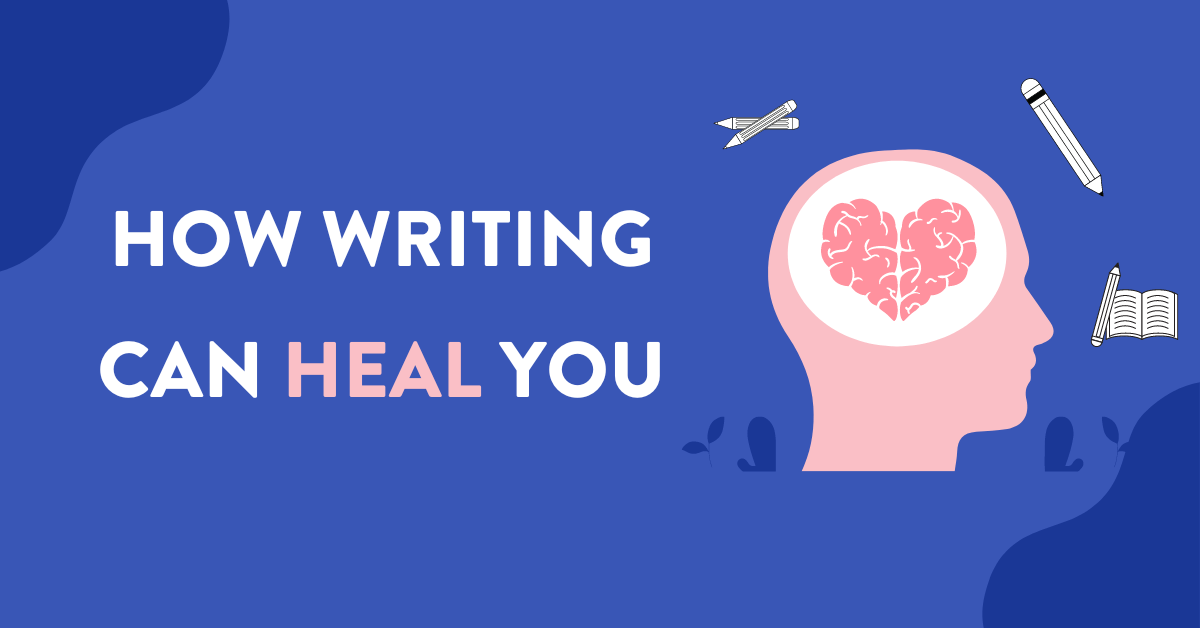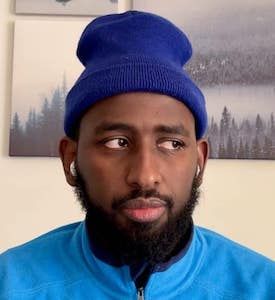
Guest post by Said Shaiye
Mary Karr, in THE ART OF MEMOIR, once wrote:
“If you think writing a memoir can replace therapy, stop writing and go get therapy.”
So I stopped writing and went to therapy. Then I realized therapy wouldn’t be enough.
So how did I overcome years of serious addiction and begin healing from childhood trauma?
1. Writing, like Recovery, helps you know yourself.
Addiction and trauma are deeply rooted & interrelated phenomena. Writing can help you learn the source of your pain. People often turn to drugs to escape pain.
I have been misdiagnosed as a million different things. They never felt right. Writing helped me process my feelings & learn my deepest motivations.
Whenever I relapsed, writing helped me understand why, and plan for ways to avoid it in the future. It’s easy to give up on ourselves when shame takes over. Writing helped me put it all in perspective.
2. When you can’t afford therapy, a pen & paper will suffice.
I grew up in Seattle, a city known for depression. I was born in Somalia, a country known for fracturing. It was almost guaranteed that I would struggle, and struggle led me to addiction.
During my darkest years, writing was my only friend. 3AM, walking the streets, high & drunk, crying in the rain – I would write, because writing understood my pain.
Journaling is one of the first things therapists will suggest as a tool for healing. You can’t be at the therapist’s office every day, and you can’t constantly burden loved ones with your pain. Writing is something that will always be there for you.
Writing therapy helped me hold on, no matter how hard the road got.
3. Writing helped me discover I’m Autistic with ADHD & PTSD.
The years of searching for the source of my pain did more than just help me accept myself – they also led to discover my neurodivergence. I’d been misdiagnosed as everything from Bipolar to Borderline Personality Disorder, but I always felt they weren’t the right diagnoses for me.
Looking back on it all, I now see that my addiction was an attempt to self-medicate. I wasn’t lazy or unmotivated – I had untreated ADHD. I wasn’t a manic depressive – I was constantly experiencing Autistic burnout!
4. Writing will never abandon you, even if everyone else does.
You can’t be at the therapist’s office or vent to your loved ones every day. Writing is something that will always be there for you. If you don’t have the energy to write, writing will wait until you do.
Being Autistic means that I am often misunderstood. Even now that I know I’m Autistic, I am still misunderstood. Imagine how much harder it was when I didn’t know?
I have always been to criticism and have had difficulties maintaining relationships. I often thought I was destined to die alone. Writing helped me be okay with this idea.
5. Writing is the only person that ever understood me.
If addiction comes from trauma, and if love is the answer to trauma, then building connections with others is one way to overcome addiction. This is much easier said than done; trauma affects our ability to form healthy relationships.
I have lost countless friends due to my own shortcomings. I try to think of myself as a good person, but I often have meltdowns and outbursts during times of extreme stress. Not too many people can tolerate this.
The nature of my heart, the pain that I have endured in this life, makes it such that I sometimes lash out at people I care about. I don’t mean to do this, but that’s what trauma does to a person. I was born in a civil war; can you blame me?
The thing I love about writing is it doesn’t care about any of that. It is a malleable receptacle; it holds anything I can throw at it. It does not judge me and allows me to be my worst self if that’s what I need.
If I stop writing for 5 years, it won’t be hurt by my absence. It will be there waiting, ready to let me heal. This is something that human relationships are not meant to withstand.
6. Writing helped me find my tribe, and my tribe helped me survive.
Writing is not the same thing as publishing. But if you decide to publish your writing, it can have miraculous effects on your healing. Some of the pieces I’ve published over the years have been read by people I now consider close friends.
They reached out to me, told me how my words impacted them (made them feel seen!), and shared their gratitude. I have been brought to tears so many times by this act of generosity from complete strangers. Ultimately, you should know that writing is a gift; one that connects distant hearts & helps us all heal.
7. Writing helped me work through Relapse.
I’ve been sober for almost 10 years now, but I don’t take it for granted. It took me countless attempts to quit my various drugs of choice. Sometimes I would quit one, only for another one to come back into my life.
Recovery is a process, just like writing is a process. You don’t write to reach an end goal; you write for the sake of writing. You don’t magically quit using drugs and alcohol one day; you work towards it, one day at a time.
I’ve always been hard on myself; always expected perfection. Life isn’t so black & white. Imagine my surprise when, after going cold turkey for 6 months, I found myself stuck in a year-long binge.
I wanted to give up, to give in to my addictions, but I knew it wouldn’t end well. I wrote as often as possible, on anything I could find – most often, on a napkin in a dive bar. I tried to talk myself through it, to not let the feelings of worthlessness take over.
8. Writing has helped me stay sober over the years.
By asking myself questions, by reflecting on the lessons of an addict life, I’ve learned all of my triggers and pitfalls. I have used writing as a tool to map out my addiction journey. I know what led me to that life, and I see how unavoidable it was.
I accept that I did what I needed to do in that season of life, and I let go of my guilt. I know how hard I’ve worked to build my coping skills and repair the damage of those years. I am learning to love myself every single day.
9. Writing is a window into your soul.
Our inner world is always in flux. Sometimes I don’t know how much I’m struggling until I write my thoughts out. They come flying, all in a jumble, and I feel relief.
As an external processor, writing helps me visualize my thoughts. I get stuck in my head and one of the only ways to get unstuck is to write through the stuck.
Sobriety is about being real with yourself. It’s also about doing routine check-ins, so you know where you are, can see where you may be headed. Writing is a way to course correct & prevent disaster before it happens.
10. Writing is the best thing that ever happened to me.
After my family & faith, writing is what saved my life. I dedicated my life to writing because I know I wouldn’t be here without it. There were so many times I just wanted to give up on life… but writing my pain (and sharing it at open mics) helped me persevere.
Writing is no substitute for therapy, and I am no mental health practitioner. But I have lived this life, have seen some things, and have learned some lessons along the way.
Life is not easy, and I won’t pretend that recovery is a straight line. Trauma is still a major part of my life, and something I will likely work to heal from until the day I die.
But I am grateful for everything, even the pain. Without the rain, we couldn’t know the joy of sunshine. Without hardship, there can be no ease.
As long as you have something to write with, and a desire to heal, then nothing can stand in your way. I never thought that I would go from nearly overdosing every night to being a published author, major book award finalist, and Writing Professor with a Master’s degree.
Those things are nice, but honestly? The most important achievement I’ve ever made was getting and staying sober. I couldn’t have done that without writing.


One thought on “10 Ways Writing Helped Me Overcome Addiction & Trauma”
After I originally commented I appear to have clicked on the -Notify me when new comments are added- checkbox and from now on every time a comment is added I get 4 emails with the same comment. There has to be an easy method you are able to remove me from that service? Kudos!